-

Просмотров: 31927
Психологический вампиризм
Анастасия Кайтукова
Психологический вампиризм – это поиск и использование людей в качестве защиты и источника…
-
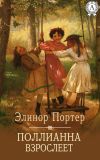
Просмотров: 4993
Поллианна взрослеет
Элинор Портер
«Поллианна взрослеет» делится на 2 части. В первой события происходят примерно через два…
-

Просмотров: 2683
Посмотри, отвернись, посмотри
Ана Шерри
Полина Журавлева и Александра Нечаева живут в параллельных мирах. Одна – москвичка,…
-

Просмотров: 1764
Шаман. Дверь домой
Константин Калбазов
Адреналин, струящийся по жилам, и рухнувшие прежние барьеры. Схватки с аборигенами,…
-

Просмотров: 1636
Цветик-семицветик. Сказки
Александр Лысёв
Валентин Петрович Катаев (1897–1986) – классик отечественной литературы. Произведений для…
-

Просмотров: 1285
Фокус мироздания
Елена Кароль
Для кого-то падение с моста смертельно, я же получила второй шанс… И новый мир в…
-

Просмотров: 1223
Мозаика Великой Отечественной. От 22…
Алексей Исаев
НОВАЯ КНИГА ведущего военного историка – это настоящая мозаика Великой Отечественной…
-

Просмотров: 1175
Любовь – игра, или Ведьма в поиске
Ольга Олие
Говорят, что ведьма магу не пара. Но если ваш союз благословили природные стихии, то…
-

Просмотров: 1110
Призрак на полставки
Валентина Савенко
Чем занимаются студенты Академии рун перед практикой? Прячут запрещенные фолианты,…
-
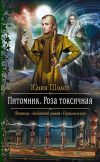
Просмотров: 1086
Питомник. Роза токсичная
Юлия Шолох
Отомстить за смерть сестры – единственное, чего желала героиня. Сделать так, чтобы больше…
-
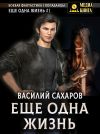
Просмотров: 1058
Еще одна жизнь
Василий Сахаров
«Беда пришла под покровом темноты, после полуночи, когда благословенный торговый город…
-

Просмотров: 1027
Леннарт Фартовый
Владимир Корн
На этот раз команде охотников за сокровищами во главе со Счастливчиком Леонардом…
-
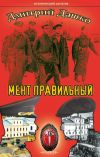
Просмотров: 1000
Мент правильный
Дмитрий Дашко
НЭП, новая экономическая политика, породила не только зажиточных коммерсантов, но и…
-

Просмотров: 983
Мекленбургский дьявол
Иван Оченков
Сотни лет Крымское ханство терзало рубежи нашей родины, доходя иной раз до Москвы.…
-

Просмотров: 910
Бродяга. Драку заказывали?
Данте Алигьери
Вот вроде только решил, что приключения закончились и впереди ждёт долгая, спокойная…
-

Просмотров: 837
Мужчина с собачкой
Анна Гринь
Уездный городок Броцлав потрясен ужасным происшествием: в своем доме жестоко убит…
-

Просмотров: 826
Азовский гамбит
Иван Оченков
Восьмой год правит Русью царь Иван – наш современник, угодивший в семнадцатый век и…
-
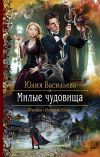
Просмотров: 818
Милые чудовища
Юлия Васильева
Джентльмен может выйти на улицу без денег, но без зонта – никогда! Почему? Понаблюдайте…
-

Просмотров: 790
Лето в Дедморозовке
Андрей Усачев
«Это шестая, заключительная книга серии “Дед Мороз из Дедморозовки”. О чем она, несложно…
-

Просмотров: 785
Усадьба Сфинкса
Константин Образцов
ПРОДОЛЖЕНИЕ КУЛЬТОВЫХ БЕСТСЕЛЛЕРОВ «КРАСНЫЕ ЦЕПИ» И «МОЛОТ ВЕДЬМ». НОВОЕ ДЕЛО АЛИНЫ И…
-

Просмотров: 770
Брак во имя Альянса
Оливия Штерн
С появлением пришельцев у границ Земного Альянса моя жизнь разделилась на «до» и «после».…
-

Просмотров: 747
Медведь по завещанию
Елена Ульева
Какая сирота хотя бы однажды не мечтала получить внезапное наследство… А если это…
-

Просмотров: 740
Аномальный наследник. Среди лучших
Элиан Тарс
Худшие опасения подтвердились: злейшие враги Александритов и всего живого проникли в мой…
-
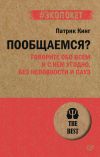
Просмотров: 717
Пообщаемся? Говорите обо всем и с кем…
Патрик Кинг
Большинство коммуникационных проблем возникает из-за отсутствия признания.
Мы слушаем,…
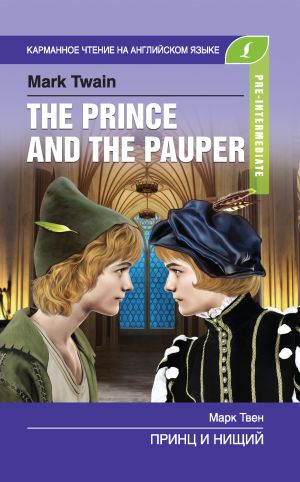










































Книга мне всем понравилась. Это первая книга на иностранном языке, которую я решила прочитать. Конечно, адаптация очень легкая для знатоков среднего уровня. Эта книга подойдет для начинающих, вот прям рекомендую.